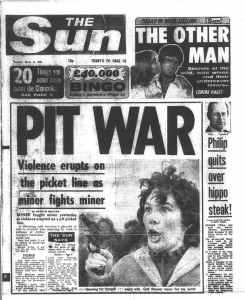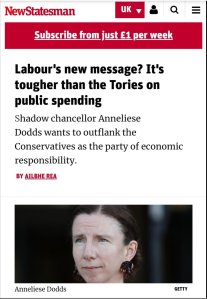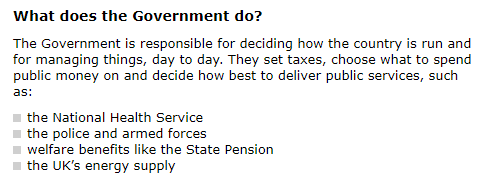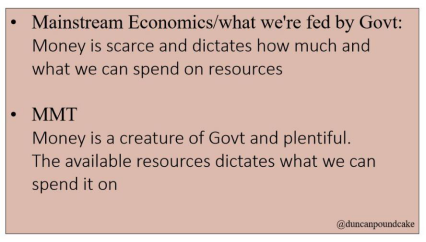
In my last blog: Democracy is too much Democracy?! I showed how the Trilateral Commission’s ‘Democracy in Crisis: 1975’ was, in my view, their reasoning as to why democracy and Socialism needed to be suppressed so that the guardians of Capitalism, the elite, can maintain control of their capitalist interests.
This is a follow-on blog, connecting the dots between the Trilateral Commission’s purpose, Neoliberalism, Thatcher, and Labour ‘centrism’.
Neoliberalism and The Trilateral Commission
Trilateral Commission was formed to protect the interests of capitalists, as does the neoliberal political and economic ideology. I found a neat synopsis in a Labour Heartlands article entitled ‘Sir Keir Starmer: The Trilateral Commission and Jeffrey Epstein’ By Paul Knaggs February 24, 2020
“An organisation that believes the working class, the masses should be removed from any democratic process leaving the issues of democracy and government to the Elite, the establishment.”
“An organisation that was created to spread neoliberal free-market values across the globe, that now finds itself having to recreate its form and mission to manage the spread of nationalism, populism and protectionism all of which they vehemently oppose.”
Elements of ’The Constitution of Liberty’ by Friedrich Hayek (one of the founders of neoliberalism) are reflected in the Trilateral Commission’s ‘Democracy in Crisis: 1975’ For example:
“Hayek regards democracy as the best practicable form of government, so long as a majority of the community is committed to individual liberty, the Rule of Law and limited government. Democracy is not primarily a way of life, but a set of procedures for organising and operating government.”
In other words, members of government should be left to lead once chosen. No ‘voice of the people’ in decision or policy making, no scrutiny, just let them get on with it. But of course, this means government can then act in their own self interests – as we have witnessed down the years.
Neoliberalism – Hayek, Friedman, and Thatcher
Friedrich Hayek was an Austrian born political economist and philosopher who believed that it wasn’t democracy but markets which dictated Liberalism.
“Liberalism is a political and economic doctrine that emphasizes individual autonomy, equality of opportunity, and the protection of individual rights (primarily to life, liberty, and property), originally against the state and later against both the state and private economic actors, including businesses.” Britannica.com
Having observed a cyclical pattern of economic recessions and booms, Hayek became convinced that the markets should be left to sort themselves out, competitive markets were key, and state governments should not interfere by injecting money into the economy – ie quantitative easing. He said that State planning leads to authoritarianism, but dictatorships adopting market driven economic policies were okay.
In 1947, Hayek met Milton Friedman in Switzerland at a conference (organised by Hayek) which came to be known as the Mont Pelerin Society. Milton Friedman taught at the University of Chicago. Hayek and Friedman clicked.
“Large swaths of Europe lay in ruins. Reconstruction efforts were colored by Keynesian ideals: employment for all, curbing the free market, and regulation of banks. The war state became the welfare state. Yet it was during those same years that neoliberal thought began gaining traction thanks to the efforts of the Mont Pèlerin Society, a group that would go on to become one of the leading think tanks of the 20th century. “Together, they helped precipitate a global policy transformation with implications that will continue to reverberate for decades,” says the historian Angus Burgin.”
“For the rest of his life, Friedman never stopped emphasizing that his success would have been inconceivable without the groundwork laid since 1947. The rise of neoliberalism played out like a relay race, with think tanks passing the baton to journalists, who handed it off to politicians. Running the anchor leg were two of the most powerful leaders in the Western world, Ronald Reagan and Margaret Thatcher. When asked what she considered to be her greatest victory, Thatcher’s reply was “New Labour”: Under the leadership of neoliberal Tony Blair, even her social democratic rivals in the Labour Party had come around to her worldview.” Rutger Bregman
From 1950 – 1962, Hayek was a professor at the University of Chicago in the US. Here, in 1960 he wrote ‘The Constitution of Liberty’ in response to his adversary Keynes’ critique years earlier.

In 1975 at a Conservative Party Research Department meeting, Margaret Thatcher is said to have pulled out of her handbag a copy of Hayek’s book and presented it saying “This is what we believe”.
Neoliberal ideology took hold and burgeoned under the leaderships of Margaret Thatcher in the UK and Ronald Regan in the United States. Faith in the State declined as faith in free market systems increased. The UK became a DINKY* society as property ownership and easy to obtain mortgages boomed, interest rates increased, manufacturing industry lost, unions demonised and regulated, and the rate of unemployment rose.
*Double Income No Kids Yet


Pinochet and the Chicago Boys
Outside influence in Chile’s politics existed at a time when Communism was seen as a danger by the Western world. As Allende’s socialist movement grew in popularity, so did the US and UK’s anxiety levels…. especially about the possible nationalisation of US owned copper mining industry in Chile.
“Under the Labour government of Harold Wilson (1964-1970), a secret Foreign Office unit initiated a propaganda offensive in Chile aiming to prevent Allende, Chile’s leading socialist figure, winning power in two presidential elections, in 1964 and 1970.”
However, Allende did win, and became President in November 1970. A socialist programme ensued including nationalising the copper mines.
But interference in Chile’s political landscape continued under the Conservative Government when Sir Alec Douglas-Home was Foreign Secretary:
“[The Foreign Office unit] The IRD also shared intelligence about left-wing activity in the country with the US government. British officials in Santiago assisted a CIA-funded media organisation which was part of extensive US covert action to overthrow Allende, culminating in the 1973 coup.”
In September 1973 Chile’s socialist government was overthrown in a military coup. Yet again, involving outside interference from the capitalists guarding their own interests…..
“The U.S. Senate Select Committee on Intelligence has disclosed that “CIA collaborators” helped plan the economic measures that Chile’s junta enacted immediately after seizing power. Committee witnesses maintain that some of the “Chicago boys” received CIA funds for such research efforts as a 300-page economic blueprint that was given to military leaders before the coup.”
https://www.thenation.com/article/archive/the-chicago-boys-in-chile-economic-freedoms-awful-toll/
The Chicago Boys were a group of Chilean born, US educated economists who had studied at Milton Friedman’s Chicago School of economics.

So, in 1973 when the military junta seized power, the Chicago Boys set to work in Pinochet’s government with their neoliberal policies. State industries were privatised (except the copper mines), capital flows were deregulated, price controls abolished, and taxes reduced. It was neoliberalism on steroids! However, this caused a shock to the economic system. Bank interest rates went sky high, manufacturing industries were lost, and unemployment doubled. By 1975 manufacturing production had dropped by 26%. The Chicago Boys claimed the economic crisis was the previous government’s economic legacy – due to a lack of market competition.
Pinochet stuck with the neoliberal programme and the economy did start to show signs of recovery. However, in 1979 Chile pegged it’s currency to the US dollar. Over-valuation of the Peso and high interest rates led to the economic crisis of 1982.
The Chicago Boys were ousted, banks nationalised, and Chile’s Central Bank settled it’s foreign debt. Government public spending was greater than when Allende’s socialist government was in power. By 1985 bank regulation and capital controls returned, but the banks were re-privatised.
In 1990, following a referendum, Pinochet’s dictatorship came to an end and democracy restored. A more socialist programme of spending under the new president Alwyn was implemented and unions were legitamised.
Thatcher and Pinochet

Under Edward Heath, the UK formally recognised the legitimacy of Pinochet’s regime in 1973. In 1974 however, Harold Wilson’s government imposed sanctions on the sale of arms to Chile, mainly due to public protest about human rights abuses. Margaret Thatcher became leader of the opposition in 1975, and in 1979 Prime Minister of the UK. Not only did she lift the embargo on the sale of arms and weapons to Chile, the UK also provided training in counter insurgency to their military.
Thatcher treated Pinochet as a friend, at the same time as crowing about a special relationship with US president Regan. It was almost like Thatcher and Regan were proud parents of the neoliberal baby they’d produced in Chile, and wanted to nurture it then show it off to the World as an example of neoliberalism being a success….. and there was plenty of propaganda to make it seem as though it was.
Both Labour and Conservative had sold arms to Chile, and to Argentina, and both parties in government had tried to swap the Falkland Islands for oil rights when oil was discovered off the islands’ coast, but Argentina were not conceding.
In 1980 Thatcher’s foreign minister had secret talks with Argentina to finally seal the deal on a swap, but Labour suddenly developed a conscience and led a strong protest against the government, so the plan was shelved. Argentina’s claim on the territory eventually led to armed conflict, but Thatcher was still exporting arms to Argentina right up to the eve of going to war with them.

Extract http://camdennewjournal.com/article/that-sinking-feeling 7th May 2020
Thatcher’s friendship with Pinochet was very useful for her during the Falklands War when, as Argentina’s neighbour, Chile provided intelligence to the UK.
The Falkland’s War, Thatcher’s glorious Boudicca event….. what a sham.
Conclusion
The Trilateral Commission is the guide, and Neoliberalism the method, by which the capitalist elite ensure global control of their interests . They are anti-democratic whilst pretending to be upholders of democracy. Using governments to do their bidding, they are willing to destroy people’s lives and destabilise countries to maintain guardianship of the sources of their wealth.

























